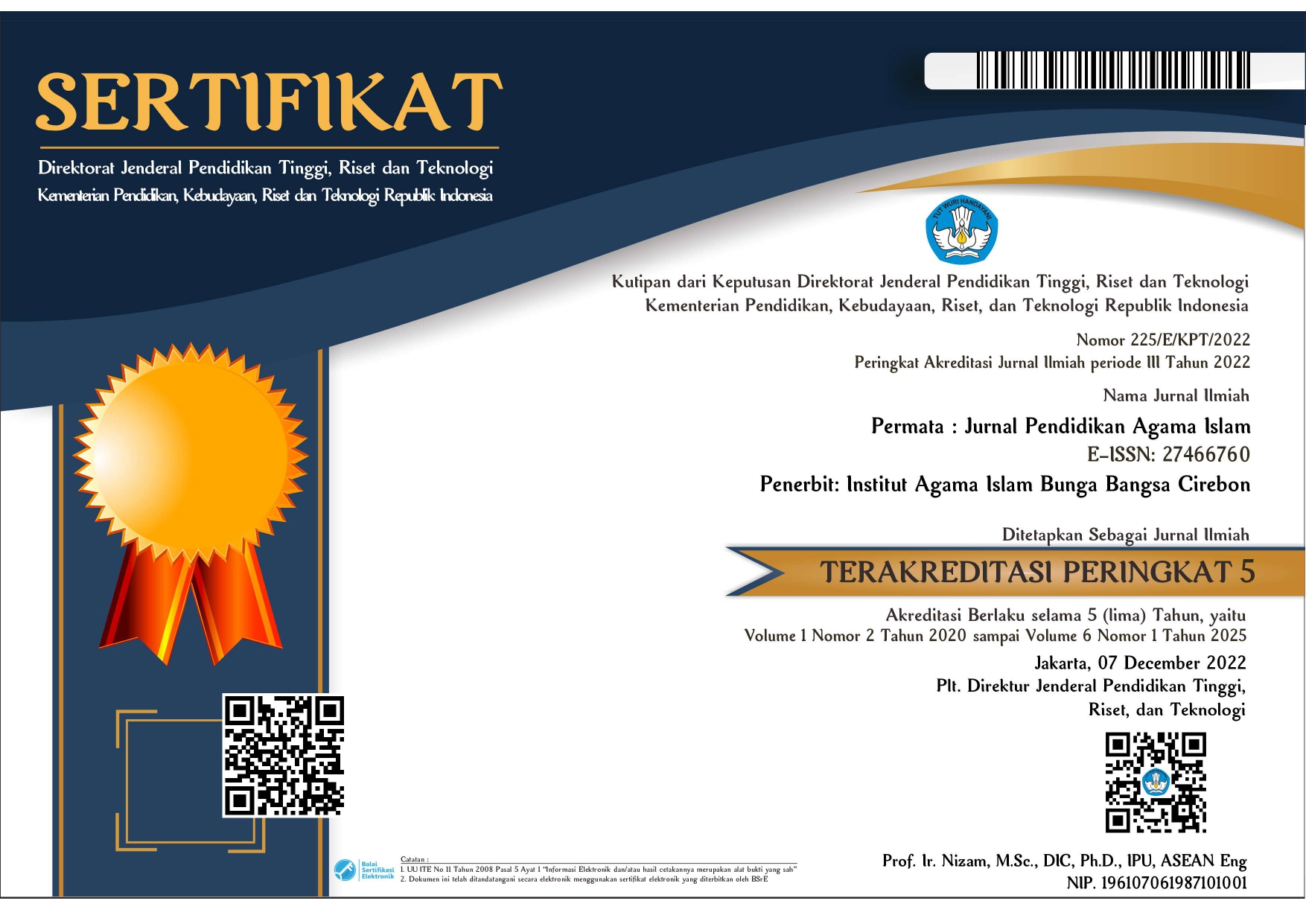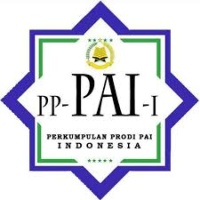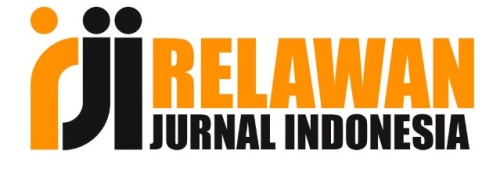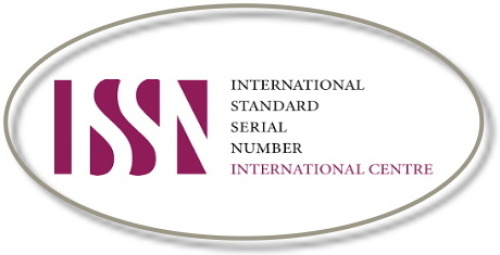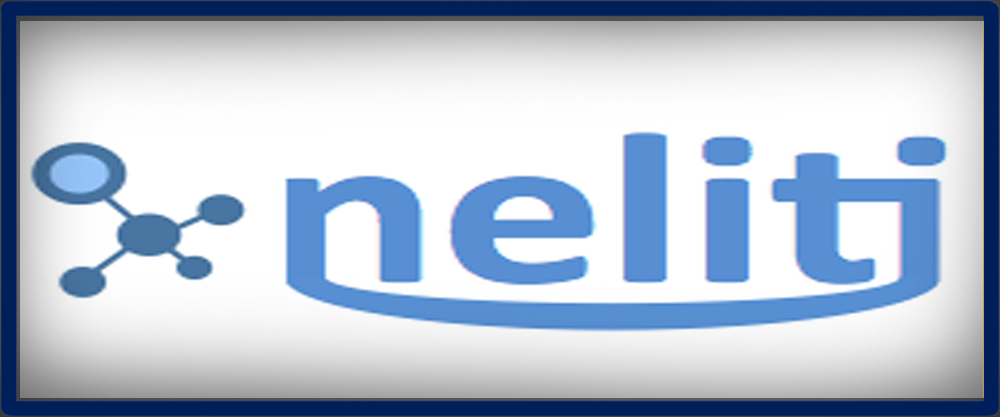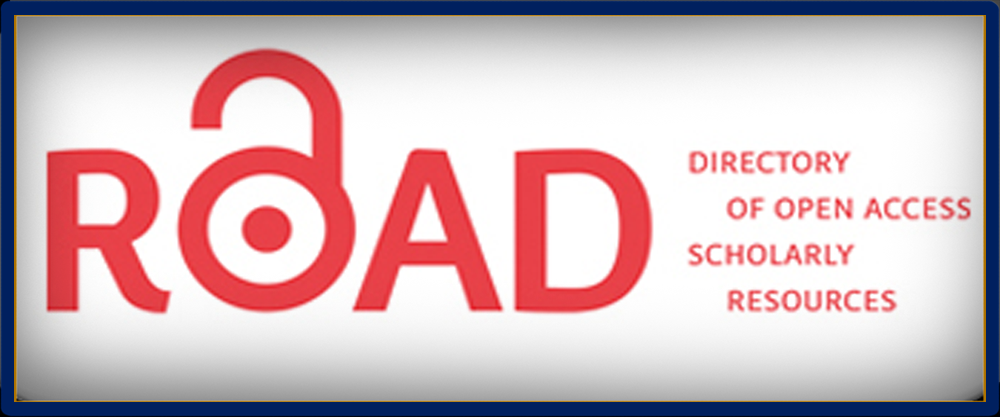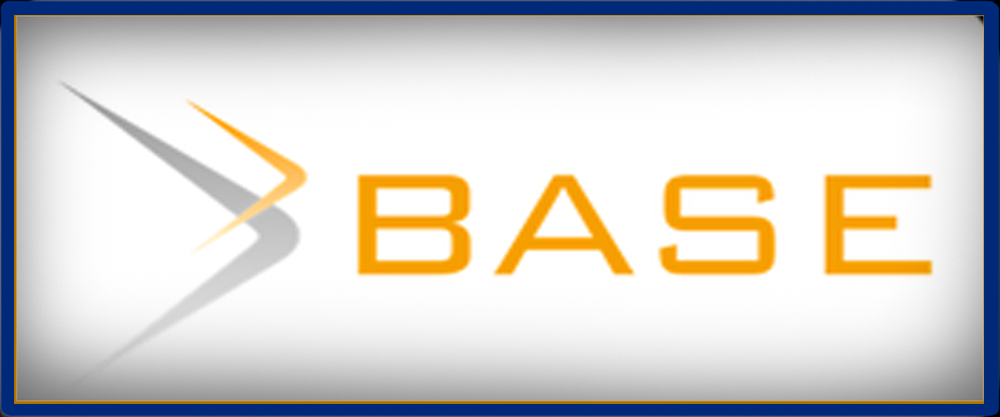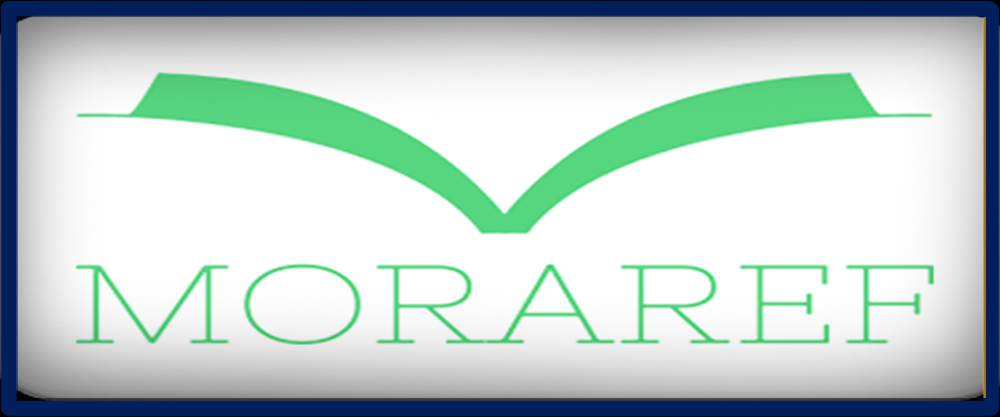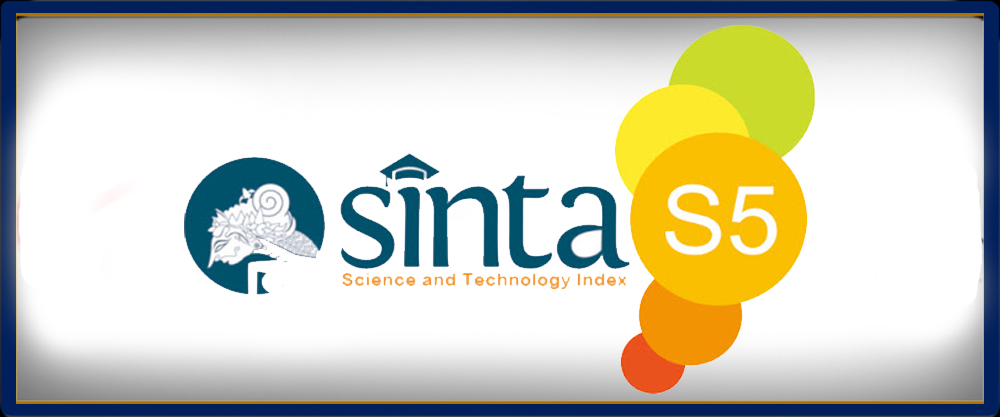| CERTIFICATE |
|
Peer Review Process
All submissions to Permata : Jurnal Pendidikan Agama Islam (Islamic Education Journal) undergo a rigorous peer-review process to ensure the quality and validity of the published research. The journal operates a double-blind peer review process, meaning that the authors and the reviewers are anonymous. The review process is carried out by experts in the relevant fields of study, who evaluate the submitted manuscripts based on their scientific merit, originality, and relevance to the journal's scope.
- Initial Evaluation: Upon receipt of a manuscript, the editorial board will conduct an initial evaluation to ensure that the manuscript meets the scope and focus of the journal and adheres to the publication conditions. Manuscripts that do not meet these requirements will be rejected without further review. The manuscript with a higher than 35% similarity will be rejected in this stage. The editorial office will check the article formatting and citation styles and adhere to the specified author guidelines. If the required conditions are unmet, the manuscript will be returned to the author for reformatting and resubmission. If the manuscript passes approval, it will be sent to reviewers.
- Assignment of Reviewers: The editorial board will select five independent reviewers who are experts in the relevant field of study and have experience in the research area the manuscript covers. The reviewers will be blinded to the identity of the authors, and the authors will be blinded to the identity of the reviewers. The listing of the names of the authors, acknowledgments, and references to author contributions must be removed from the manuscript and posted in the Title page file. The assigned editor will then send invitations to reviewers. The invited reviewers are expected to be affiliated with differing institutions from those of the corresponding authors. Moreover, reviewers will consider the invitation according to their own scientific expertise, any potential conflicts of interest, and other relevant criteria. Our journal is committed to assigning reviewers within two weeks.
- Review Process: The reviewers will evaluate the manuscript based on its scientific quality, originality, validity, and relevance to the field of study. The reviewers are usually given two weeks to review the research work. They will provide constructive feedback to the authors to help improve the manuscript and may recommend acceptance, rejection, or revision of the manuscript.
- Decision: The editor-in-chief will make the final decision on whether to accept, reject, or request a revision of the manuscript based on the feedback provided by the reviewers and the manuscript's adherence to the publication conditions. If the comments/responses of the reviewers differ significantly, the academic editor may invite an additional individual to review the manuscript before making the final decision. The academic editor will send a decision (with rejection, acceptance, or the need for major or minor revisions) to the author via the online system, along with any relevant comments submitted by the reviewers. As our journal adopts the double-blind, peer-review principle, all comments and suggestions remain anonymous. The average time from submission to the first decision will be one month, and from acceptance to publishing will be 2-4 weeks.
- Revision Process: If the manuscript is accepted with revision, the authors will be asked to revise the manuscript based on the feedback provided by the reviewers and resubmit it for further review. Re-submitted material must include the revised manuscript with highlighted changes and a rebuttal letter. The author is usually given two weeks (for minor revisions) and four weeks (for major revisions) to revise the manuscript. The major revised manuscript will undergo a second round of review by the same reviewers, who will evaluate whether the revisions adequately address their feedback. For minor revisions, the subsequent review process may not be necessary.
- Publication: Once the manuscript has been accepted for publication, the authors will be asked to submit a final version of the manuscript, which will be copyedited and formatted for publication in the journal.
This peer review process will ensure that all manuscripts submitted to the Permata : Jurnal Pendidikan Agama Islam (Islamic Education Journal) are evaluated based on the highest standards of scientific integrity and ethical conduct and that only the highest quality research is published.
PUBLICATION ETHICS AND PUBLICATION MALPRACTICE STATEMENT FOR PEER REVIEW PROCESS
Permata : Jurnal Pendidikan Agama Islam (Islamic Education Journal) is committed to upholding the highest standards of publication ethics and preventing publication malpractice in its peer review process. We adhere to the following guidelines:
- Confidentiality: The peer review process is confidential, and all information related to submitted manuscripts is handled with strict confidentiality. Editors, reviewers, and any other involved parties must maintain confidentiality and not disclose any details about the manuscript or its review process.
- Objectivity and Impartiality: Peer review is conducted in an objective and unbiased manner. Editors and reviewers evaluate manuscripts based on their scientific merit, relevance, and quality, without any personal bias or conflict of interest. They should provide constructive feedback to authors to improve the quality of their work.
- Timeliness: Permata : Jurnal Pendidikan Agama Islam (Islamic Education Journal) is committed to timely peer review. Editors and reviewers are expected to complete their review process within a reasonable time frame. Authors will be promptly informed about the status and progress of their manuscripts during the review process.
- Transparency and Accountability: The peer review process should be transparent and accountable. Reviewers are encouraged to provide clear, well-reasoned, and constructive feedback. Editors should make fair and well-informed decisions based on the reviewers' comments and their own expertise.
- Conflict of Interest: Editors and reviewers must declare any potential conflicts of interest that may affect their impartiality and objectivity in the review process. If a conflict of interest arises, appropriate actions will be taken to ensure unbiased evaluation.
- Plagiarism and Misconduct: Editors and reviewers should be vigilant in identifying any potential cases of plagiarism, data fabrication, or other forms of research misconduct. Any suspected misconduct should be reported promptly to the responsible authorities.
- Peer Reviewer Recognition: Permata : Jurnal Pendidikan Agama Islam (Islamic Education Journal) acknowledges the important contribution of peer reviewers and recognizes their expertise and dedication. The journal will provide appropriate recognition and credit to reviewers for their valuable contributions to the publication process.
Permata : Jurnal Pendidikan Agama Islam (Islamic Education Journal) is committed to maintaining the integrity and credibility of the peer review process. We strive to ensure fairness, transparency, and ethical conduct in evaluating manuscripts, thereby upholding the quality and trustworthiness of the research published in our journal.

